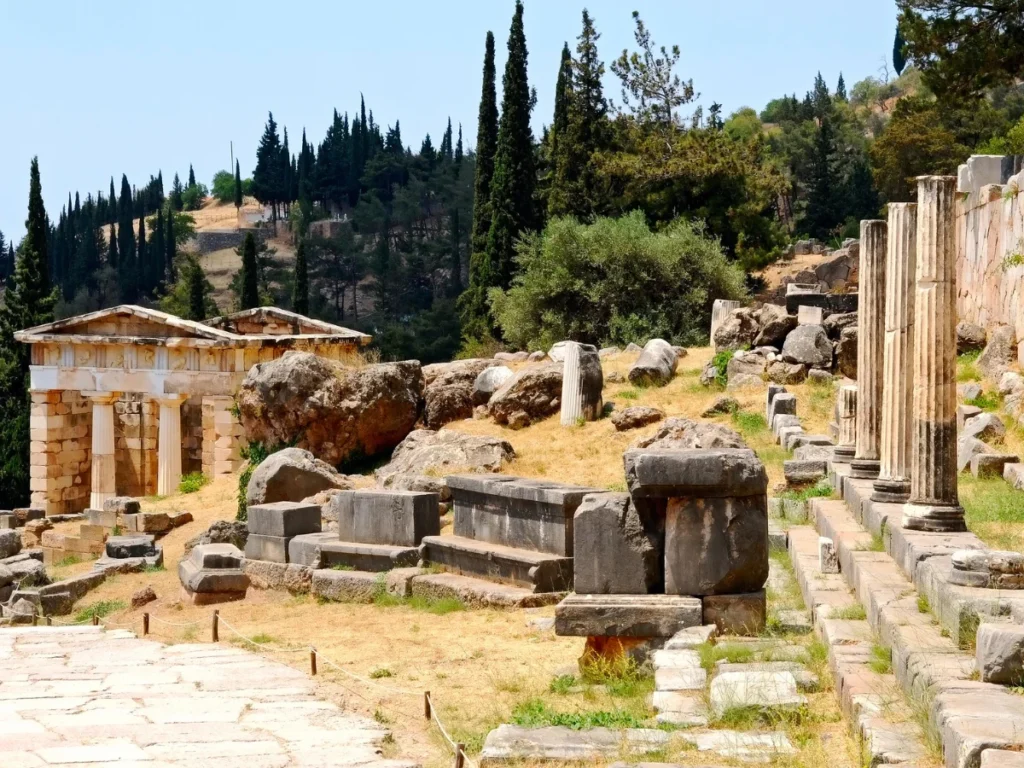Thales of Miletus was an ancient Greek thinker
Thales of Miletus was an ancient Greek thinker whose remarkable contributions spanned philosophy, mathematics, and astronomy. Born in Miletus around 624 BC, Thales is considered the first Western philosopher, advocating natural explanations for the world’s phenomena. He famously posited that water was the fundamental substance of the universe and introduced deductive reasoning and theorems in geometry.

Thales of Miletus, an ancient Greek thinker
Born around 624 BC, Thales emerged as a pivotal figure in ancient Greek intellectual pursuits, leaving an indelible mark on philosophy, mathematics, and science. Recognized among the Seven Sages of Greece, his legacy reverberates across diverse domains of knowledge.
Early Life and Background
Originating from the thriving Ionian city-state of Miletus on Asia Minor’s western shores, Thales was a figure of significant influence, transcending his Phoenician heritage. Though details of his youth remain veiled, as was common in ancient times, his educational pursuits likely encompassed voyages to Egypt and Babylonia, where he delved into the realms of mathematics and astronomy.
Philosophy and Mathematics
Thales, often hailed as the inaugural philosopher in Western thought, departed from myth and religion, seeking rational explanations for natural phenomena. He posited that water was the fundamental substance of the universe, igniting the exploration of a single underlying element. In mathematics, Thales made strides by introducing geometry to the Greeks. His pioneering work encompassed deductive reasoning and theorems, including the renowned “Thales’ theorem,” which delves into the properties of circles, diameters, and chords.
Astronomy and Navigation
Thales expanded his horizons into astronomy, reputedly foreseeing a solar eclipse in 585 BC, demonstrating a keen grasp of celestial occurrences. His expertise in astronomy and geometry propelled progress in navigation and map-making, facilitating safer voyages and expeditions for mariners and explorers.
Legacy
Thales’ legacy is felt across various disciplines. His emphasis on rational inquiry over mythological explanations laid the groundwork for the development of philosophy as a distinct field. His mathematical and geometric contributions influenced generations of mathematicians, including Pythagoras. Thales’ work in astronomy and navigation was pivotal for seafaring civilizations in the Mediterranean.
More History

Plato
Plato, a brilliant ancient Greek philosopher and student of Socrates, founded the Academy in Athens. His philosophical dialogues explored ethics, politics, and metaphysics.

Minos of Crete
Minos of Crete, a legendary figure in ancient Greek mythology, was known for his wise rule, creation of the Minotaur’s Labyrinth, and legendary control of the seas through the Cretan Navy.

Cleopatra
Cleopatra, often associated with Egypt, was of Greek descent and the last pharaoh of Egypt. Her charisma, intelligence, and political acumen made her a prominent historical figure in antiquity.
